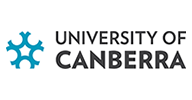If you are not currently employed or volunteering in industry, during your course you will be required to complete vocational placement so you can start practising your new skills in a real-world environment. You’ll be required to work shifts determined by your placement provider, and these can include early mornings or late nights, any day of the week, including public holidays. TAFE Queensland may be able to assist in arranging suitable placements.
Completing placement is compulsory, and you will be expected to manage family and work commitments in order to complete your shifts. You are required to complete 160 hours of placement to satisfy this component of your qualification.
National Disability Insurance Scheme (NDIS)
This course requires you to obtain a NDIS Worker Screening Check to be eligible to attend the vocational placement assessment component of your studies.
Prior to Placement, you will need to receive and provide evidence of the following checks:
- You must complete your online NDIS Worker Screening Clearance application at this link - NDIS Worker Screening Unit (WSU), and nominate TAFE Queensland as your employer. There is no cost to students. TAFE Queensland will verify each student.
- Students must also complete the NDIS Worker Orientation Online Modules (4 modules/approximately 90 minutes in total). Upon completion, students will need to provide their Certificate of Completion to both TAFE Queensland and their placement provider.
- If you work with children on Placement, you will also need a Blue Card Working with Children Check. This is called Blue Card in Queensland or you will need the equivalent if you are completing your Placement outside of Queensland.
- Please note: you can apply for both the NDIS Worker Screening Clearance and Blue Card by completing a combined application via the NDIS Worker Screening portal NDIS Worker Screening Unit (WSU).
If your check identifies that you have a criminal history, you may be disqualified from being eligible to undertake placement and assessment, which would affect your course outcomes. If you think this might impact you, please speak to the relevant Placement Coordinator for further information.
Please note: TAFE Queensland wishes to warn you, as a Blue Card applicant, that it is an offence for a disqualified person to sign a Blue Card application. For further information regarding 'disqualified' persons, please contact Blue Card Services.
Vaccination requirements
Vaccinations may be required by the owner or operator of the facility providing your placement.
These requirements will be provided to the student, prior to arrangements being made for the completion of vocational placement.





